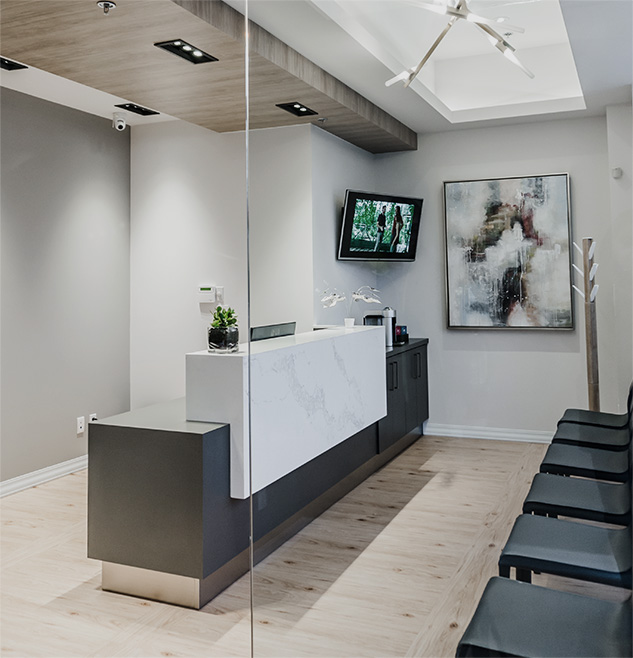Dental freezing, typically lidocaine or novocaine, helps make dental procedures comfortable, and is an essential component of dental procedures.
Depending on the treatment area and the type of procedure you need, freezing can last 60 to 90 minutes, on average. The amount of anesthetic can also affect how long it lasts. If you’re anxious about dental freezing, talk to your dental team for reassurance and care.
What Is Dental Freezing?
Dental anesthesia, also known as dental freezing, is a commonly used method to numb the mouth and gums during dental procedures. The most common dental numbing agents are lidocaine or novocaine, which help block pain signals from your nerves.
Your dentist will place a numbing gel or spray to prepare the area before injecting the anesthetic solution. After a few minutes, the numbness will start, and you won’t feel anything during the procedure. However, you may experience some mild discomfort or a tingling sensation.
How Does Dental Freezing Last?
The duration of the numbing effect usually depends on the type of dental freezing administered and the area of the mouth involved. The amount of anesthetic can also affect how long it lasts. Typically, dental freezing can last between 30 minutes and 90 minutes.
Dental freezing’s duration can depend on a few factors:
- The type of anesthesia
- The treatment area
- The procedure being performed
- Individual elements, including metabolism
For example, a lower jaw injection can last longer because the lower jaw is more difficult to freeze, while an upper jaw injection may not need as much anesthetic.
When Do You Need a Dental Freezing?
While cleanings and routine dental exams don’t require an anesthetic injection, some procedures necessitate dental freezing. Some of the most common procedures performed under freezing include:
- Root canals
- Cavity fillings
- Tooth extractions
Depending on your unique dental procedure, your dentist may recommend using anesthesia to help make you more comfortable and reduce anxiety about pain.
How to Unfreeze Your Mouth
The simplest way to unfreeze your mouth is to allow the effects to fade naturally; however, if you want to help speed up the process, there are some tactics to use.
Massage
If you’re not swelling or sensitive, gently massaging the exterior of the treatment area can help promote blood flow. You can use a warm compress to help stimulate healthy circulation combined with a massage. Before touching your face, wash your hands and don’t put them in your mouth, or you may risk infection.
Stay Active
Physical activity can help improve blood circulation and support healthy healing after a dental procedure. If you’re increasing your metabolism, you can work the anesthetic out of your body more quickly.
Ask your dental team what kind of physical activity is approved after your procedure. Sometimes, the best advice is to rest.
Take a Nap
If your dentist calls for rest following a procedure, taking a nap can help pass the time so you can regain sensation naturally.
Dental Anxiety with Anesthesia
Some patients are generally anxious or nervous about dental freezing because they fear the side effects. Although dental anesthesia is safe, it’s normal to feel nervous. Some common side effects may include swelling or redness at the injection site, slight dizziness, or a metallic taste in your mouth. These symptoms usually go away within a few hours.
A few helpful tips to reduce anxiety and discomfort during dental freezing include the following:
- Speak up and let your dentist know about your anxiety.
- Take a slow deep breath or use relaxation techniques like meditation or visualization to calm yourself.
- Distract yourself by listening to music or watching TV.
- Eat a light meal before the procedure.
- Keep yourself hydrated before and after the procedure.
Schedule a Dental Exam & Cleaning
Dental freezing is a safe and effective way to relieve discomfort during dental procedures. Regular cleanings don’t require anesthetic, so begin by scheduling a dental exam at Markham Dental Smiles. We can identify early signs of problems to help preserve your smile.
If dental anxiety surrounding freezing is delaying your visit, talk to the Markham Dental Smiles team about any concerns you have about dental anesthesia. We’re here to help.







